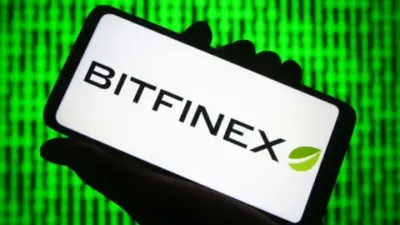Coinbase discloses that 90% of crypto assets do not meet its listing standards while detailing its prioritization criteria and asset selection process.
Coinbase disclosed that nearly 90% of its assessed crypto assets did not satisfy its registration criteria. The Digital Asset Support Group (DASG) conducts a comprehensive review process for the platform, which includes legal, compliance, and technical assessments.
The process guarantees that only assets with strong fundamentals, security, and liquidity are approved. Additional business analysis is necessary to assess factors such as market demand, social sentiment, and project development despite the sanction of the DASG.
The Coinbase Listing Funnel: A Strict Review Process
Coinbase published a structured and multi-step process for listing crypto assets on X on January 15. The Digital Asset Support Group (DASG) conducts an analysis and evaluation during the initial phase. This organization assesses holdings by rigorous technical, legal, and compliance standards. They aim to guarantee that only secure, compliant, and resilient projects successfully navigate this phase. These stringent standards are not met by approximately 90% of the assets that have been reviewed.
The assets are subjected to a business analysis process following DASG approval. This phase involves the evaluation of liquidity, trading volume, and customer demand. The number of holders and the token or application’s market capitalization are significant factors. Furthermore, qualitative factors are considered, including the distribution mechanism of tokens, social sentiment, and the project team’s track record. Integrating native blockchain assets necessitates extended timelines due to the increased technical complexity.
Process of Asset Prioritization and Selection
Tokens, native blockchain assets, and pre-launch tokens are the three categories Coinbase organizes assets for their prioritization. Tokens that comply with standards such as Ethereum ERC20 or Solana SPL are expedited for integration purposes. In contrast, native blockchain assets necessitate a significant amount of technical expertise. They are prioritized according to their market capitalization and trading volume in exchange products such as Exchange and Custody products.
A post-review: To guarantee that listed assets continue to satisfy listing standards, the exchange supervises them. The project team’s failure to develop, minimal trading volumes, or failure to comply with legal or technical requirements may all be valid reasons for delisting. The exchange evaluates liquidity and trading activity to preserve its users’ expectations. These measures protect the platform’s reputation and user trust.
Recent Listings and Coinbase Exchange Volume
Coinbase, one of the largest crypto exchanges in the United States, reported a 25% decrease in futures trading volume over the past 24 hours, with a total of $17 billion recorded by Coinglass. Open interest in Bitcoin reached $129 million today. In comparison, Bitcoin pairs dominated the trading activity with $15 billion in volume, underscoring the platform’s dominant position in the crypto market.
Tokens frequently experience substantial price increases following their inclusion on one of the most prominent cryptocurrency exchanges. For example, Toshi (TOSHI) experienced an extraordinary 200% price increase following its inclusion in Coinbase’s roadmap. Toshi’s stock price was $0.0002331, with a market capitalization of $98 million and a 24-hour trading volume of $65 million. The platform’s capacity to increase the visibility and accessibility of tokens is evident in terms of their price fluctuations.
The price of the exchange native stock, COIN, was $255, with a 4% increase in the past 24 hours. The current market capitalization of the stock is $64 billion. While it continues to dominate the U.S. crypto landscape, its impact on market dynamics, token listings, and trading volume is crucial to the industry.



